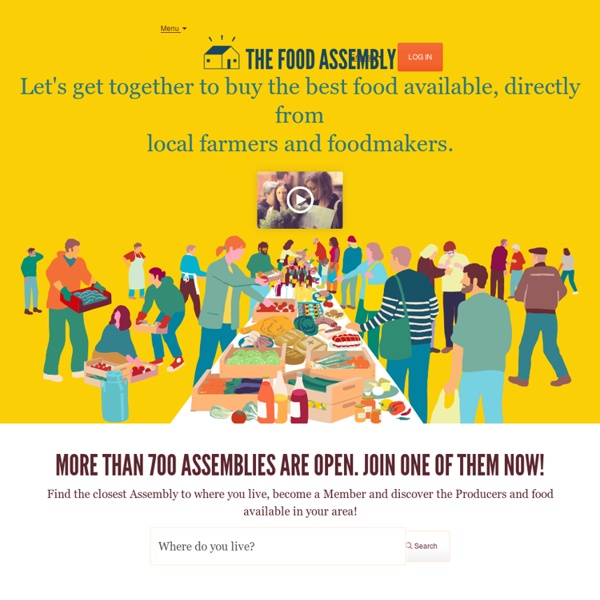



PARTNERS: Training for Trainsformation Community Action Network Community Action Network (CAN) is a community development NGO based in Dublin.Founded in 1986 by a small group of community activists, CAN’s agenda was very clear - to support marginalised groups and communities to work for social change towards a more equal and just society. 25 years later, this is still our core mission. CAN celebrated its 25th birthday with a gathering at Croke Park on October 25th 2012. Click here to read all about our Birthday Event ... Whatever action we embark on we believe that the people most affected by the issue must be central to its resolution. CAN accompanies people as they assert their right to participate fully in society, to have their voice heard and their choices respected. CAN on video Throughout the website, you will find links to videos from CAN's YouTube channel. CAN: Leadership A 3 part video from CAN's YouTube channel on the subject of CAN's approach to Leadership.
Xcellr8 Innovation Cell - Startup Cafe (Hartford, CT From website: Our mission is to stimulate collaboration, innovation and entrepreneurial activity between leaders and executives of the business and education communities. It’s an opportunity to participate and share thoughts and ideas on howwe can best work together to stimulate growth, create innovation and spur economic activity. We feel it’s important to challenge the status quo, and construct a solid foundation for future growth by utilizing and developing talent that exists today in our region. Cell Name: Xcellr8 Innovation CellCell Location: TollandCell Leader: Kevin Bouley, President of Nerac, Inc.Meeting time and location: 8:00 to 9:00 am, the second Thursday of each month at Nerac, Inc offices in Tolland, One Technology Drive, Tolland, 06084Contact: Paige Rasid, [masked], x335 [masked] What is the Connecticut Growth Network? Local cells may be organized by vertical industry, profession, target market, special interest, or simply geography.
BootstrapWiki Bootstrap Network Blog Wednesday, March 21, 2007 American Creativity Association I spoke earlier today at the American Creativity Association's annual conference here in Austin, coordinated by William "Bud" Wurtz, who told me there were around 100 very smart, creative people attending. Bijoy notes that Gregg Fraley, who spoke to the Ideation group, will be at the ACA meeting, which runs through Saturday. Monday, March 19, 2007 Ideation March Meeting with Gregg Fraley Gregg Fraley, author of Jack's Notebook spoke at the March Ideation Meeting at Cafe Caffeine. Here's a brief outline of Gregg's talk: Make a wish list. All attending seemed to get a great deal out of the meeting as Gregg had us each focus on a specific problem we are facing. Additional reading: Jack's Notebook (CPS explained in a novel format), Creative Leadership (in-depth explanation of CPS, very technical) Thursday, March 15, 2007 Check out SockNet Austin The Social Networking group SockNet Austin has formed and you are invited to join. DemoCamp Recap
A League Of His Own Kevin Koym has a degree in electrical engineering, a r?sum? that includes stints at IBM, Motorola, and NeXT Computer, and a two-person software company called Enterprise Teaming. In an age of information overload, a new style of networking is getting entrepreneurs' attention. The simple Yahoo! If the e-mail list is the network's engine, its us-against-the-world ethos is its fuel. Goswami, a 32-year-old Stanford University grad, gets most of the credit for figuring out how self-funded entrepreneurs could support one another in the Information Age. Hoping to keep Aviri alive, Goswami started thinking about bootstrapping. But when Goswami checked in with business networks around town such as the Chamber of Commerce, the technology associations, and even academic groups, he didn't think they had much to offer an entrepreneur who wanted to go it alone. Soon, Goswami was attracting seasoned entrepreneurs such as Hoover to the monthly gatherings to share their advice. By Andrew Park
L'apprentissage collaboratif : coopérer pour apprendre, apprendre à coopérer*** Accueil> Erreur 404 Erreur 404 : la page demandée n'est pas disponible La page que vous avez demandé n'existe plus ... Nous pouvons vous proposer de : Vous êtes Publicité Régie publicitaire Droits de reproduction et de diffusion réservés © Centre Inffo 2017 Usage strictement personnel. Close ✛ Preference for all services ✓ Allow ✗ Deny By allowing these third party services, you accept theirs cookies and the use of tracking technologies necessary for their proper functioning. ✛ APIs APIs are used to load scripts: geolocation, search engines, translations, ... Google Maps This service does not use cookie. Google Tag Manager This service can install 22 cookies. ✛ Advertising network Ad networks can generate revenue by selling advertising space on the site. ✛ Audience measurement The audience measurement services used to generate useful statistics attendance to improve the site. Google Analytics (universal) This service can install 7 cookies. ✛ Comments ✛ Social networks ✛ Support ✛ Videos
Graphique croissance ** We all know the economy needs jobs. Not industrial economy jobs, which we’re transitioning away from, but knowledge economy jobs. But where did the Apples, Microsofts and HPs that fuel today’s economy come from? That’s right, startups. Our entry Gazelles + Economic Gardening = Prosperity highlighted this very trend back in 2003. In 2007, we posted how every neighborhood needs a coworking space. First, Blake Jennelle, founder of Philly Startup Leaders, the “largest and most active entrepreneur community in Philadelphia,” provides some insight into the world of startups, typically 3-5 employees that are looking to grow based on a predominant product or service: “Delusion is the hidden startup killer. Teams in isolation tend to imagine market demand that’s not there. Coworking can be great for solopreneurs because they are surrounded by a diverse group of people who can keep them from getting delusional. The real problem is the cultural gap between freelancers and startups. About The Author